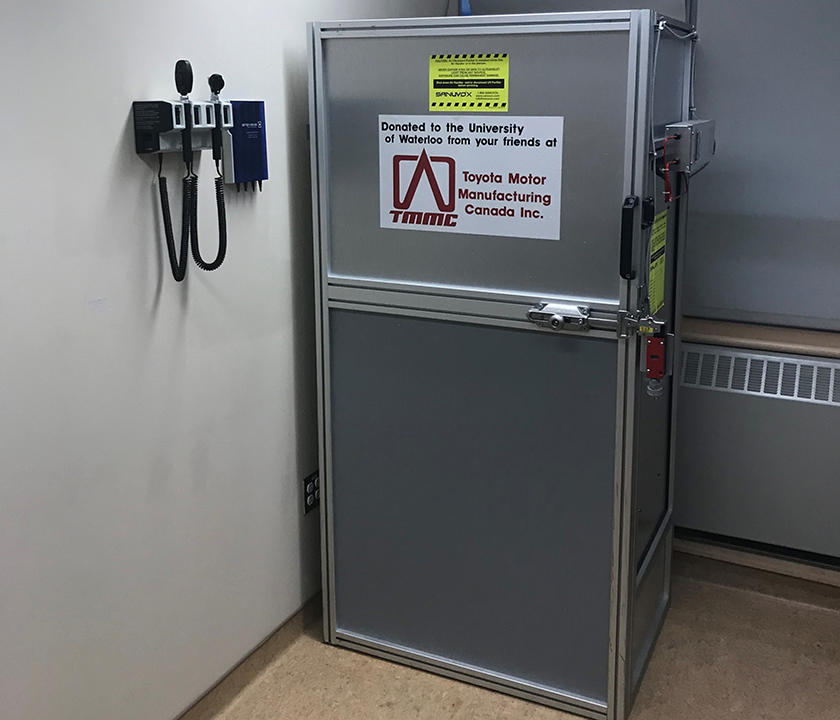LANGUAGES

Toronto, August 24, 2020 – Personal protective equipment (PPE) has always been important when medical professionals interact with patients – but it’s vital today, given the highly contagious nature of the coronavirus behind this year’s global pandemic.
In addition, PPE are now used throughout society. Where once Canadians expected to see only medical personnel wearing masks, shields and gloves, such sights are now commonplace. However, that’s put a strain on supplies of these protective equipment – and raised issues surrounding the wasteful nature of throwing away such gear after a single use.
That’s why researchers with the Department of Chemical Engineering and Health Services at the University of Waterloo (UW) welcomed the recent donation of a prototype for a PPE disinfecting machine, designed and built by engineers at Toyota Motor Manufacturing Canada (TMMC) in neighbouring Cambridge, Ontario.
“Developing new, effective ways to sterilize PPE is one way to control the spread of COVID-19, and we look forward to continuing the development of TMMC’s prototype,” said Dr. Clark Baldwin, Medical Director at the University of Waterloo. “It looks like the application of this UV treatment for sterilization purposes is going to be quite safe, no residuals, no chemicals, but that it will be very effective in killing the coronavirus. I would say that we’re looking at it from a health care perspective, but the implications are beyond that.”
TMMC’s machine uses Ultraviolet C (UVC) light – an effective means of sterilizing PPE and other tools. A reflective chamber is equipped with several UVC lamps. Contaminated items can be loaded into a portable, wheeled rack and rolled inside. Once the door is secured using special safety-rated latches, the machine exposes items to UVC light for approximately five minutes to disinfect them.
“The initial testing will help identify potential opportunities for modifications or improvements,” said Professor Bill Anderson from the Department of Chemical Engineering at the University of Waterloo, who is leading the testing of the prototype. “These might involve changes to the rack materials or layout, to achieve specific purposes or to accommodate certain items.”
TMMC engineers developed the machine in partnership with two area companies. Prescientx specializes in UVC technology for the medical industry, while JMP Solutions is a controls integrator with whom TMMC has enjoyed a long working relationship.
“When we suspended operations at our plants in March, our Assembly Engineering Group was tasked with developing a method to improve our ability to disinfect PPE and tools within the plants,” said Fred Huard, a Senior Engineering Analyst at TMMC.
By the time the team was ready to move from prototype to mass production, TMMC’s plants had reopened with new, rigid infection control processes. These proved to be very effective and it was decided that the machines would no longer be required in the plant.
“That said, we had done all this work to create the prototype, and we felt that someone else might be interested in developing it further,” Huard noted.
In December, 2019, TMMC made a $2.1 million investment to launch the Toyota Engineering Innovation Challenge at UW. This undergraduate program will support a variety of student, research and outreach activities. Toyota has enjoyed a long relationship with UW, having donated several vehicles to the university, and UW is a primary source of engineering graduates for both the TMMC Co-Op program and career engineering positions.
Every effort has been made to ensure the product specifications, equipment, and content on this site are accurate based on information available at time of publishing. In some cases, certain changes in standard equipment or options may occur, which may not be reflected online. Toyota Canada reserves the rights to make these changes without notice or obligation.